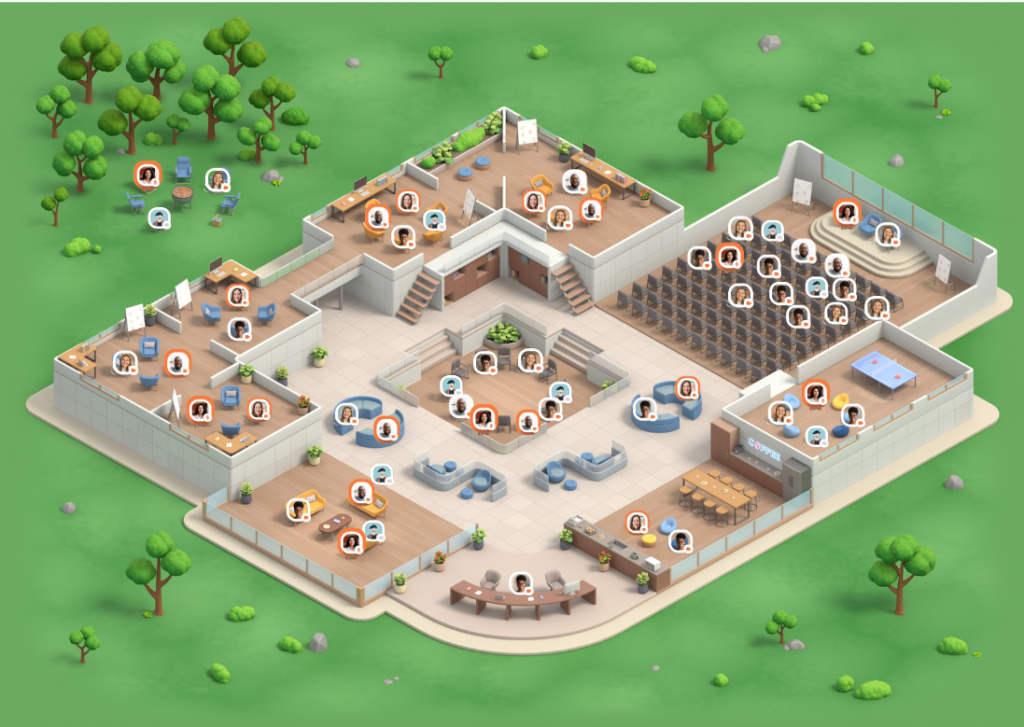
Welo Customer Perspective — Guest Blog Post
By: Gabriel Sanabria | IT Ops Manager at Pizza Prime Franchising
Have you ever considered the possibility of transforming your company or team into a 100% remote work environment? Perhaps this idea was delayed by the belief that remote work is only reserved for modern technology-only startups. However, with the advancement of technology and changes in work dynamics, many companies are considering this possibility. At the same time, his decision is not simple and requires careful analysis to determine whether the company is well positioned to make this transition successfully.
It is known that remote work provides a series of benefits, such as flexible hours, reduced operational costs, increased productivity and the expansion of the global talent pool.
But how can I transition my company or team to remote to enjoy these benefits?
By using a simple triad, where three pillars support the thesis of transformation for a team.
If you answer yes to the three items below, you can prepare your team for the transition and start remote work:
- ONE: Is it possible to perform tasks remotely? This first pillar involves evaluating the tasks and functions performed by employees to determine whether they can be performed outside the physical office environment. This requires a detailed analysis of the position’s responsibilities, identifying which can be performed remotely and which require physical presence.
- TWO: Is my team digitally and technologically mature? The second pillar concerns whether your team knows how to deal with the digital tools necessary to support remote work. This includes reliable internet access, remote collaboration tools (such as video conferencing, file sharing and instant messaging), and robust data security systems to protect sensitive information.
- THREE: Is my culture decentralized, agile and does it promote self-management? The third pillar addresses organizational culture and leadership capacity to support remote work. This requires establishing a culture of trust, autonomy and responsibility that empowers employees to manage their own activities. Furthermore, it is essential to develop remote management skills to ensure the productivity, engagement and well-being of employees who work remotely.
By meeting these three requirements, a company will be better positioned to transition to remote work effectively and sustainably.
If work is remote, it’s time to promote a basic digital transformation. Evaluate whether your company and your team use and know how to use digital technology tools in all aspects of the business, from customer service to internal resource management, efficiently.
Digital transformation improves operational efficiency, increases organizational agility, enhances the customer experience and drives innovation, enabling the company to remain competitive in an increasingly digitalized business environment.
In summary, after identifying whether the work can be remote, we are trying to connect people, tools and processes.
We know that, whether it is a traditional or modern company, in-person or remote, all success lies in the processes. I will write an article exclusively covering this subject and how to efficiently execute processes remotely, but I would like to finish by talking about a golden tip. When it comes to tools, I couldn’t fail to mention the best tool for remote work that I know.
Welo: The key to successful remote work

In the second pillar, when we talk about having an effectively digital team and high technological maturity, we could not fail to mention the use of a very effective tool for managing remote work. The Welo platform. This offers a unique approach to simulating a virtual workplace, providing an immersive and collaborative experience for remote teams.
Welo plays a key role in facilitating and optimizing remote work. With advanced project management, communication and collaboration capabilities, Welo offers a virtual environment that allows teams to work efficiently and effectively, regardless of geographic location.
The Welo platform offers a series of benefits to users:
- Welcoming and Immersive Environment: Welo provides a virtual experience that recreates the feeling of being in a real environment, promoting comfort and familiarity for participants.
- Ease of Navigation: Users can move their avatars freely around the space, choosing their seats and interacting fluidly with other participants, providing a sense of control and autonomy.
- Connectivity and Interaction: Welo allows participants to connect and interact in a natural way, facilitating spontaneous conversations and networking opportunities.
- Flexibility of Use: The platform offers a variety of customizable spaces to meet different needs, from formal meetings to networking events and learning sessions, providing versatility for different contexts.
- Integrated Tools: With advanced project management, communication and collaboration features, Welo offers a wide range of integrated tools to facilitate teamwork and maximize productivity.
In short, Welo offers a welcoming and interactive virtual environment, full of resources and tools that facilitate collaboration and promote the development of strong and productive communities.
With features like virtual meeting rooms, shared workspaces, and integrations with agile project management tools, Welo allows team members to work together efficiently regardless of their geographic location.
By integrating the Welo platform with agile methodologies and task management tools, remote teams can create a virtual work environment that promotes collaboration, transparency and efficiency. By combining agile best practices with advanced technology, teams can face the challenges of remote work with confidence and success.
In summary, when considering the possibility of making your company remote, it is essential to address these pillars comprehensively. Carefully evaluating the remote execution of tasks, ensuring adequate technological and communication infrastructure, and cultivating a favorable remote culture and management are essential steps for a successful transition to remote work. By meeting these requirements, your company will be better prepared to face the challenges and reap the benefits of remote work.
Originally posted in Portuguese on LinkedIn: https://www.linkedin.com/pulse/os-3-pilares-do-trabalho-remoto-como-avaliar-sua-equipe-sanabria-rnjvf



